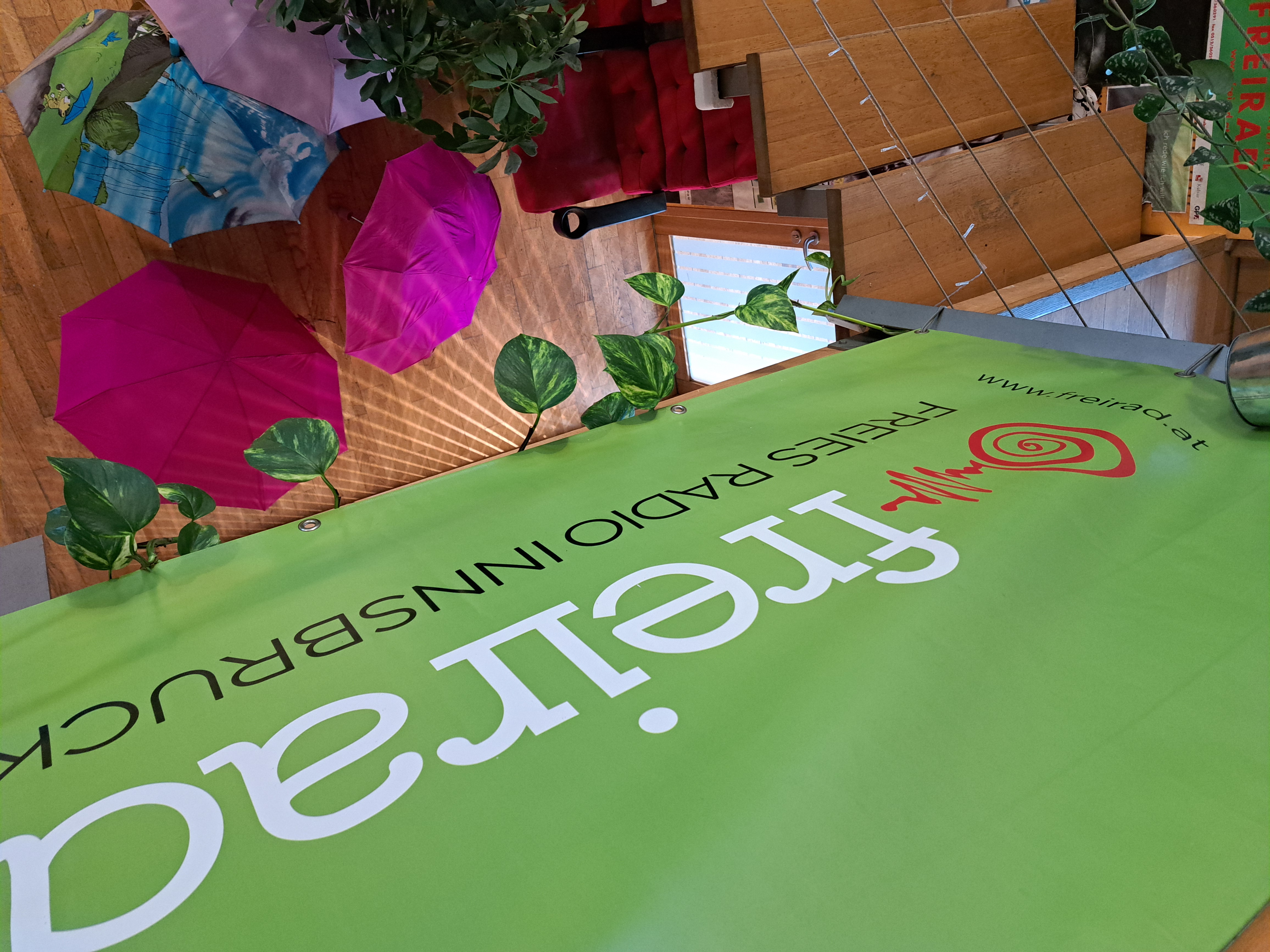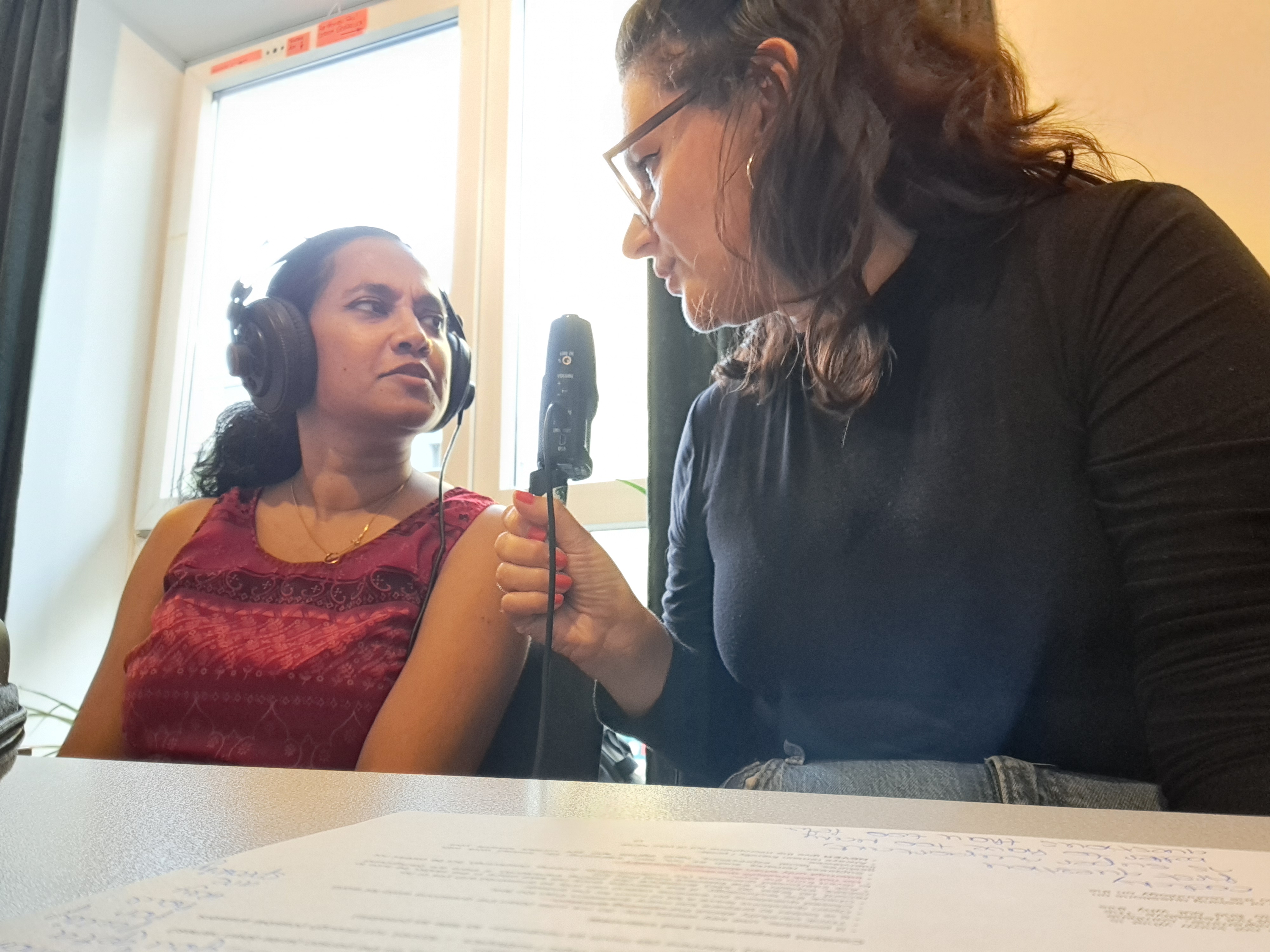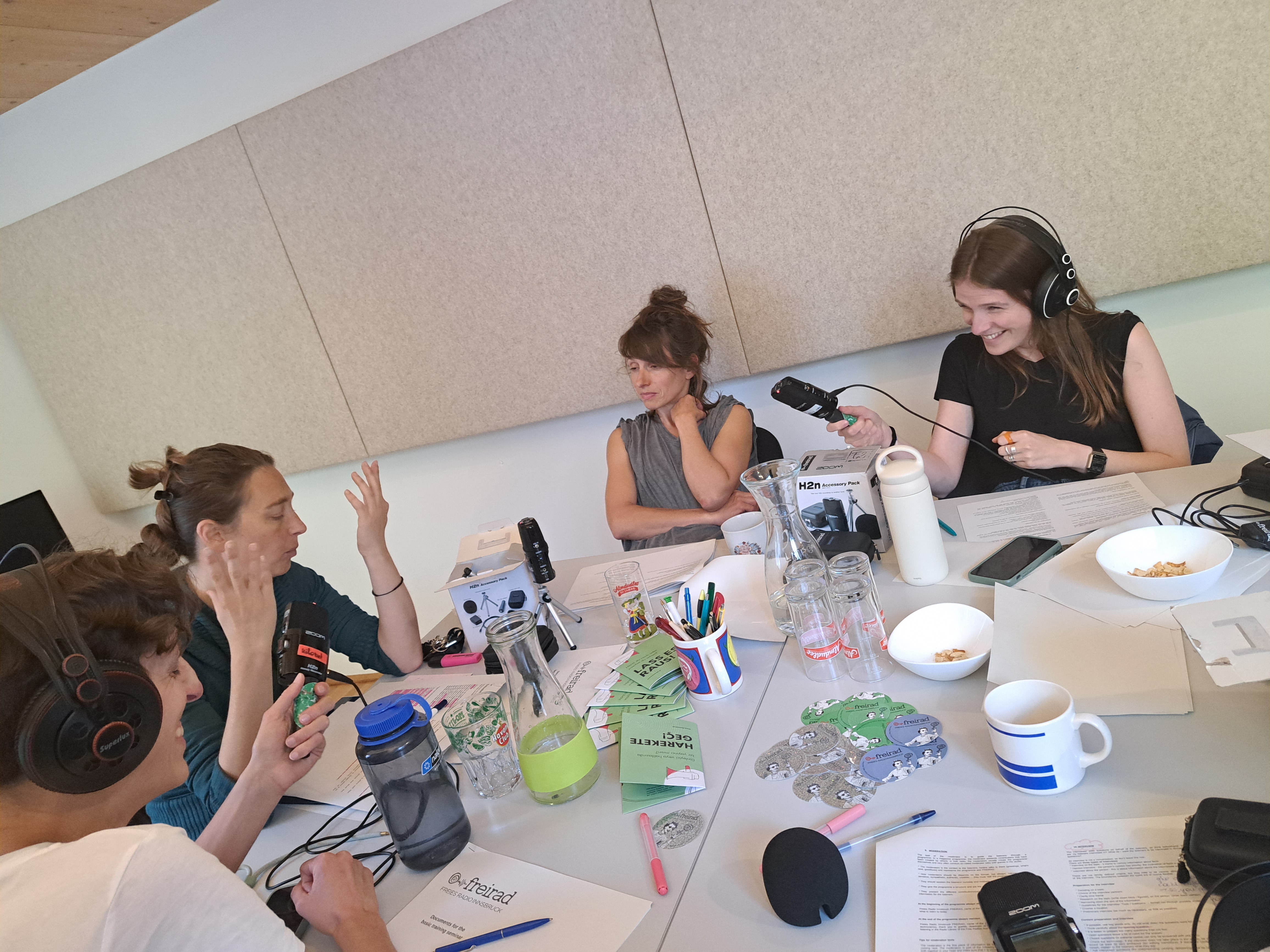/Contribution
“Nachhaltigkeit, feministisch / Sustainability, the feminist way": Audio series on selected independent radio stations in Austria
Participants: Milena Eberharter (SP IV), Sophia-Marie Horvath (SDG 15), Claudia Michl (SDG 13), Sandra Nicolics (SDG 6), Stefanie Preiml (SP IV), Sujatha Subramanian (CGI)
UniNEtZ: SDG 5, SDG 6, SDG 13, SDG 15, SP IV
Cooperation partners: Radio Agora, Radio Helsinki, Radio Freirad, “How to SDG!” podcast, Frauen*service Graz, Konzeptwerk Neue Ökonomie, Hallo Klima!, Nicole Katsioulis, IG Kultur Steiermark, Das schottische Prinzip
The audio series “Nachhaltigkeit, feministisch / Sustainability, the feminist way” was broadcast on selected independent radio stations in Austria from October 2024: Radio Agora in Carinthia/Koroška, Radio Helsinki in Graz and Radio Freirad in Innsbruck. It can be heard online in the “How to SDG!” podcast and in the Cultural Broadcasting Archive from December 2024.



After a preliminary workshop at Radio Freirad in July 2024, we explored the question of what gender equality has to do with sustainable development in a total of four 25-minute episodes as researchers at the interface between sustainability studies and gender studies. The aim was to explore the analytical added value offered by feminist engagement with sustainability issues.
Episode 1 “Leave no one behind!” shows that raising awareness of one's own position within social power relations, which is common in a feminist context, helps us to let go of generalizing assumptions and confront the complex problems of our time through appropriate complexity. Episode 2 “Who cares?” explores the role of gender in the climate and care crisis and how this so-called gendering is linked to the currently prevailing capitalist economic system. Episode 3 “Undone science” deals with education for sustainable development (ESD) and uses the example of menstruation to show how ignoring gender in science leads to the gender data gap and ultimately jeopardizes health. Episode 4 “Dreaming big” hopefully encourages us to imagine feminist utopias of sustainability - in an ecological, economic and social sense, deliberately multilingual at the end: through the global lingua franca English in different variants and Slovenian, which is one of the protected minority languages in Austria.
